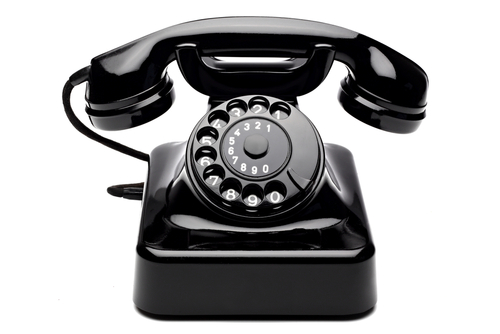In yesterday’s TEDTalk, Max Little explained how a 30-second phone call could soon be a diagnostic test for Parkinson’s disease, thanks to 7,500 people who’ve placed calls from around the world to ensure the technology’s accuracy. (See how you can get involved at ParkinsonsVoice.org.) This brings up an interesting question — what other medical tests could we see getting cheaper, easier and more accessible in the coming years? Below, find seven exciting possibilities.
Sam Gambhir: Molecular spies that detect cancer and Alzheimer’s early
In this bold talk, Dr. Sam Gambhir — a professor of cancer research at Stanford University School of Medicine — calls cancer a “solvable problem.” Rather than diagnosing diseases like cancer and Alzheimer’s in their late stages, Gambhir explains how “molecular spies” can be used to detect the very early stages of disease, allowing for “rogue cells” to be destroyed. (Filmed at TEDxStanford.)
George Whitesides: A lab the size of a postage stamp
Traditional lab tests for diseases are far too expensive to be used in the areas that need them most — the developing world. In this talk, chemist George Whitesides explains his research in developing diagnostic tests on tiny pieces of paper, which can be manufactured at close to zero cost and shipped very cheaply. (Filmed at TEDxBoston 2009.)
Deborah Rhodes: A tool that finds 3x more breast tumors
Dr. Deborah Rhodes and her team developed a tumor detection tool that’s three times as effective as traditional mammograms for women with dense breast tissue. The life-saving implications are stunning. So why haven’t we heard of it? Rhodes reveals the web of politics that have kept the test from going mainstream. (Filmed at TEDWomen 2010.)
Daniel Kraft: Medicine’s future? There’s an app for that
Physician and scientist Daniel Kraft — the future-med chair at Singularity University — doesn’t understand why the grand majority of a person’s healthcare costs are spent in the last 20 years of life. In this talk, Kraft walks us through the myriad iPhone apps that exist for diagnostic testing, from apps that detect STDs to ones that monitor blood sugar, and imagines what we could see in coming years. (Filmed at TEDxMaastricht.)
Joe DeRisi: Solving medical mysteries
There are zillions of viruses out there, with large numbers often categorized under the same name. In this talk, biochemist Joe DeRisi explains his lab’s work making DNA chips, which allow for the easy diagnosis of viruses — down to specific strains — by their DNA sequence. Not only will this help in the diagnosis of viruses, but also in treatment. (Filmed at TED2006.)
Jack Andraka: A test for pancreatic cancer
15-year-old Jack Andraka was shocked by the statistic that only 5.5% of those diagnosed with pancreatic cancer survive past five years, because diagnosis usually happens so late. In this spirited talk, Jack explains his cheap and easy test for the early detection of pancreatic cancer, using carbon nanotubes. (Read our Q&A with Jack, whose talk was filmed at TED@NewYork, part of the TED2013 Talent Search.)
Bonus: Read about Brittany Wagner, winner of Google’s second annual International Science Fair, who created an artificial neural network that allows a computer to diagnose breast cancer, making the least invasive breast cancer test — fine needle aspirates — far, far more accurate.

Comments (5)
Pingback: Legit Dragon Pharma - roids.blog
Pingback: US Steroids for Sale
Pingback: In Short: Gotye crowdsources a remix, scientists near a blood test for cancer - Entrepreneur News | Australian Society of Entrepreneurs
Pingback: In Short: Gotye crowdsources a remix, scientists near a blood test for cancer | Krantenkoppen Tech